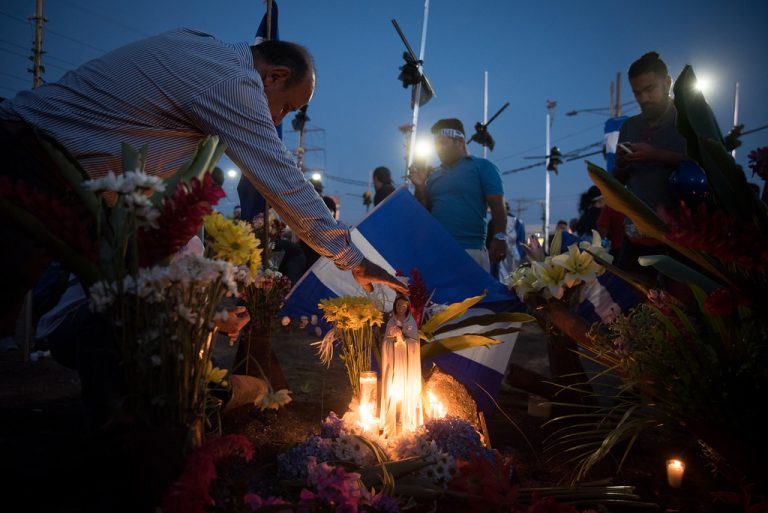29 de diciembre 2018

European Concern over Lack of Academic Freedom in Nicaragua

PUBLICIDAD 1M
PUBLICIDAD 4D
PUBLICIDAD 5D
A year that combined the most terrible, and wonderful, of our humanity comes to a close. Another chapter awaits us in 2019.

This year I have shed so many tears, both for acquaintances and for strangers. I wept in mid-April for that first group of young people who were so horrifically murdered by the Nicaraguan regime. I wept to see their faces and the pain of their mothers, families and friends. They were so very young! Very close in age to my own son.
I wept at the news of an entire family burned alive in their house as the butchers looked on impassively, while the neighbors watched, helpless.
I wept after that at the photos of other young people, dreamers and seekers of freedom, who were kidnapped and unjustly imprisoned by the regime – yet they were able to keep the purest of smiles and offer words of hope for those of us outside.
I wept as I listened to beautiful and painful songs like “Heroes of April” that seek to reflect what we have lived through and I also wept as I took part in the mass demonstrations in which the chants for justice and freedom merged with a sense of unity and closeness, among people who hadn’t known each other.
I also wept for people I know. And the truth is that I simply cannot tell which tears were the more bitter. I wept for family members and long-time friends who chose to believe and actively support the odious narrative that this was a struggle between ideological projects, denying the deaths and destruction with total self-confidence or becoming accomplices through their silence.
With those tears went a part of me, the tears holding my affection for and memories of those people, and it was an abrupt realization that affection and respect for others is neither eternal nor static and must be renewed with every new situation.
This year I have also seen how little Nicaragua seems to mean to the rest of the world, even as I saw demonstrations of solidarity with Nicaragua take place in hundreds of places across the globe.
It has been disheartening to see old “friends” of Nicaragua, forged in the heat of the revolution, now supporting Ortega simply because he proclaims his “leftist” credentials; or, at best, hesitating in the face of reports by a group of experts that denounce the government’s crimes against humanity. Yet, at the same time, it has been very encouraging to see so many people abroad using their ingenuity, humor and creativity to support us.
The year 2018 also saw thousands of compatriots go into exile. It is a forced exile that leaves broken families in its wake and strips the country of part of its social capital, but in many cases, it will also be an opportunity for personal and professional growth for so many young people who may never have planned or dreamed of living abroad.
This year has also seen an awakening of consciousness in many who, under the illusion of macroeconomic statistics, lulled by old loyalties or traumatized by the past, did not recognize the dictatorial nature of the regime. Their opened eyes are a step in the direction of change. There is still a long way to go, surely with more pain.
However, it is in these dichotomies and others that we mark the closing of a year that combined the most terrible and the most wonderful of our humanity. Another chapter awaits us in 2019.
PUBLICIDAD 3M
PUBLICIDAD 3D